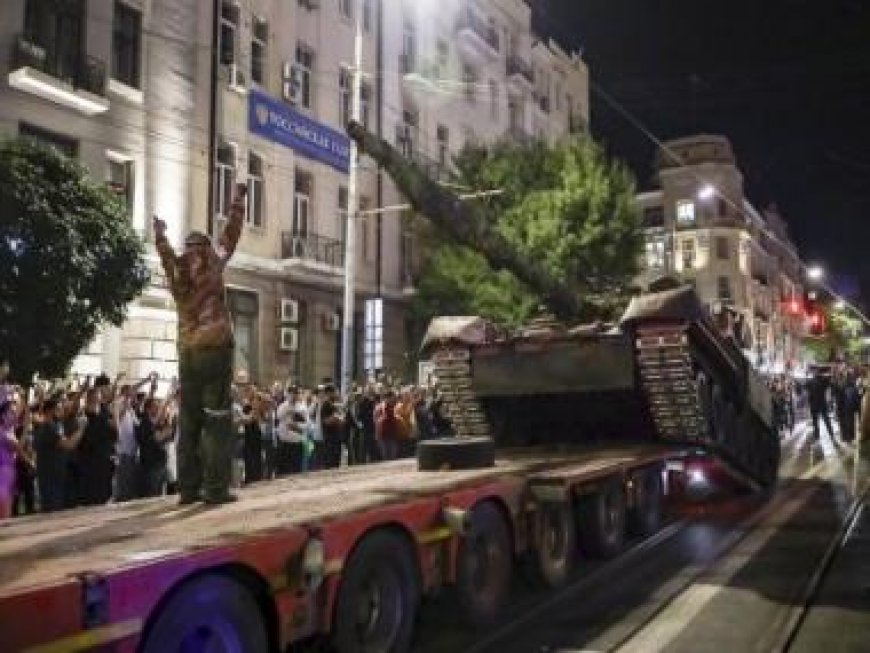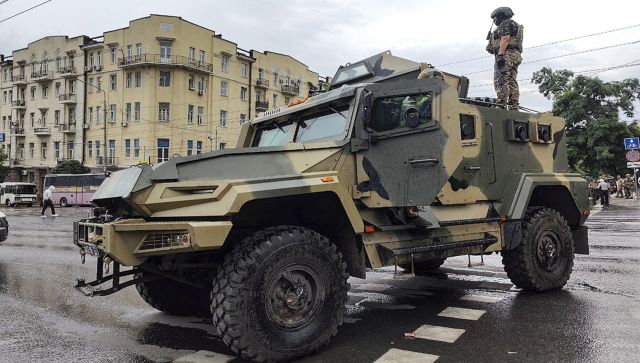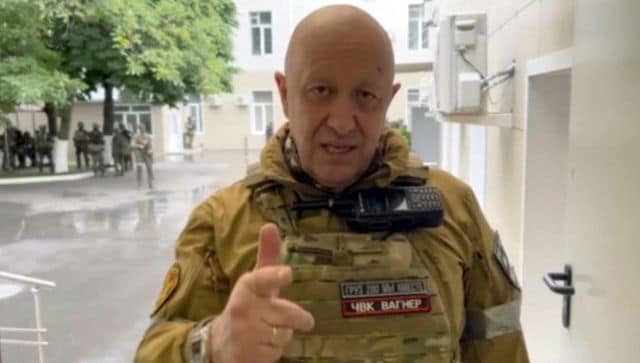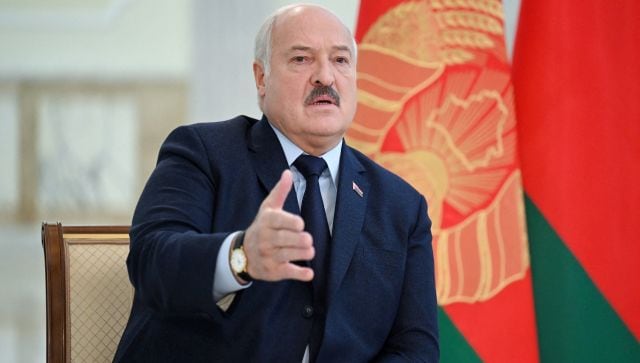Why did Wagner chief Prigozhin abort his rebellion in Russia? What happens next?
Why did Wagner chief Prigozhin abort his rebellion in Russia? What happens next?

The mutiny in Russia is over. Wagner Group boss Yevgeny Prigozhin has ordered his mercenaries to halt their march to Moscow and return to their field camps in Ukraine.
The militia leader will leave for Belarus; a criminal case against him will be dropped. “Avoiding bloodshed, internal confrontation, and clashes with unpredictable results was the highest goal,” Kremlin spokesman Dmitry Peskov told reporters.
The rebellion though shortlived was the most serious challenge Russian president Vladimir Putin faced in his over two decades in power, as the Wagner mercenary group vowed to topple Moscow’s military leadership.
Prigozhin, 62, released several messages from late Friday into Saturday claiming that he and his troops had entered the southern Russian city of Rostov-on-Don and taken control of its military sites. What followed was a series of extraordinarily fast-moving events, with the private army initially threatening to march on Moscow. But then Prigozhin suddenly announced a pullback.
Here’s what happened in Russia and what the consequences could be.
What started the uprising?
For months, Prigozhin has been locked in a power struggle with the Russian military’s top brass, blaming them for the deaths of his troops in eastern Ukraine. He has repeatedly accused them of failing to equip his private army adequately and of holding up progress with the bureaucracy while claiming victories won by Wagner as their own.
On Friday, Prigozhin’s anger appeared to boil over as he accused Moscow’s military leadership of ordering strikes on Wagner camps and killing a large number of forces. He said they had to be stopped and vowed to “go to the end”, and later claimed his forces had downed a Russian military helicopter.
Hours later, Prigozhin said he had military sites in southern Russia’s Rostov-on-Don “under control”.
The private military force reportedly then advanced on, with the governor of the Lipetsk region, whose capital is about 420 kilometres south of Moscow, saying the troops were “moving across” the territory.
But just as suddenly, Prigozhin announced that his troops were turning back to avoid spilling blood. His fighters also began withdrawing from Rostov-on-Don. An AFP reporter at the scene saw a tank, several cargo trucks and minivans carrying fighters leave the military headquarters the group had occupied earlier.

How has Putin reacted?
Putin has called the Wagner mutiny a “deadly threat” to Russia and urged the country to unite. Branding the action by the Wagner mercenaries as “treason”, he vowed “inevitable punishment”.
Security was tightened in Moscow and in several regions such as Rostov and Lipetsk, and travel restrictions were imposed in the Kaluga region, south of the capital.
Putin also held talks by telephone with Turkish president Recep Tayyip Erdogan and the leaders of Kazakhstan and Uzbekistan.
More crucially, he also phoned his ally, Belarus leader Alexander Lukashenko, who hours later announced that he had negotiated a deal with Prigozhin to stop the Wagner troop movement and de-escalate tensions.
Putin thanked Lukashenko after Wagner’s announcement. “The President of Belarus informed the President of Russia in detail about the results of negotiations with the leadership of PMC Wagner,” Lukashenko’s press service said in a statement, adding Putin “thanked his Belarusian colleague.”
What is next for Wagner and its boss?
Under the deal negotiated under the mediation of Lukashenko, the Kremlin said that Prigozhin would leave for Belarus and that a criminal case against him would be dropped.
Members of Prigozhin’s paramilitary forces who joined what Moscow described as an “armed rebellion” would not be prosecuted, the Kremlin added. “We have always respected their heroic deeds at the front,” Peskov added.
“An agreement has been reached that Wagner would return to its bases,” he said, adding that those fighters who had not participated in the rebellion would be allowed to formally join the Russian army.

How does this impact the Ukraine war?
The Wagner rebellion marked the biggest challenge yet to Putin’s long rule and Russia’s most serious security crisis since he came to power in 1999. It threatened to divert Russian attention and resources away from the battlefields in Ukraine, at a time when Kyiv is amid a counteroffensive to seize back territory.
However, Peskov said that it was “out of the question” that Wagner’s aborted rebellion would impact Russia’s campaign against Kyiv.
Amid the dramatic events in Russia, Ukrainian forces launched several new offensives on their eastern front, claiming more ground.
Ukraine’s deputy defence minister Ganna Malyar said that its forces assaulted Russian lines near the towns of Orikhovo-Vasylivka, Bakhmut, Boпdanivka, Yagidne, Klishchivka and Kurdyumivka, and made “progress in all directions”.
President Volodymyr Zelensky said Putin was likely “very scared and is probably hiding somewhere”. He has also ramped up his call for Western allies to “provide all the weapons necessary for defence”.
Kyiv needed F-16 fighter jets and Army Tactical Missile Systems (ATACMS), he said. “The security of Europe’s eastern flank depends only on our defence.”

How has the West reacted?
The significance of Saturday’s events was also not lost on Ukraine’s allies, with the leaders of the United States, France, Germany and Britain holding talks over the fast-moving developments. While all eyes were on Russia, they refrained from making any public remarks.
US officials carefully avoided direct comment on what some stressed was an “internal” situation in Russia, even as Moscow warned them to stay out of the fray.
With inputs from agencies
Read all the Latest News, Trending News, Cricket News, Bollywood News,
India News and Entertainment News here. Follow us on Facebook, Twitter and Instagram.
What's Your Reaction?


























































